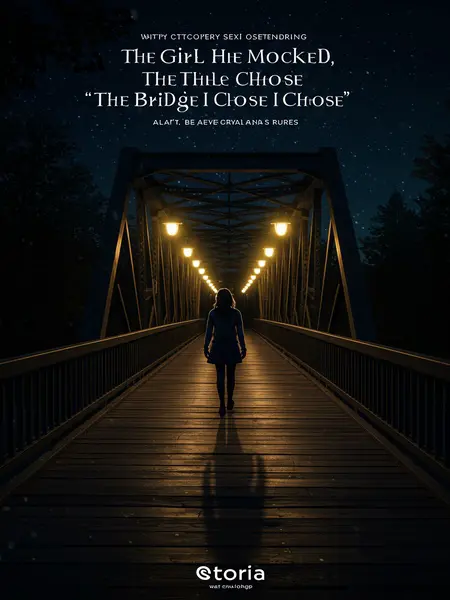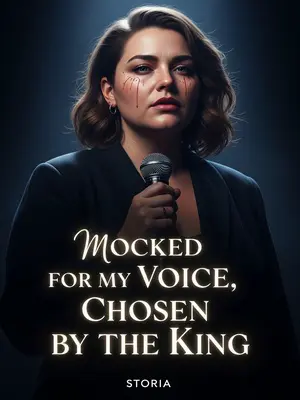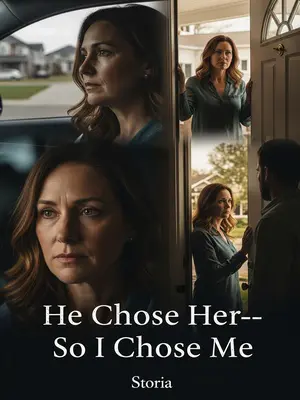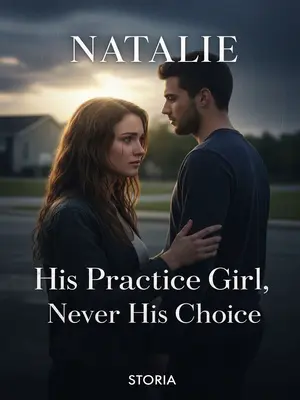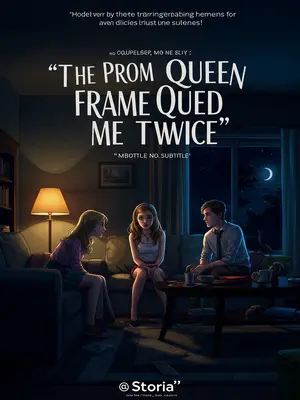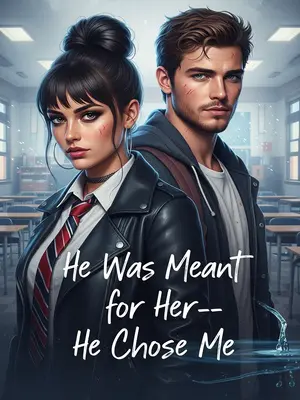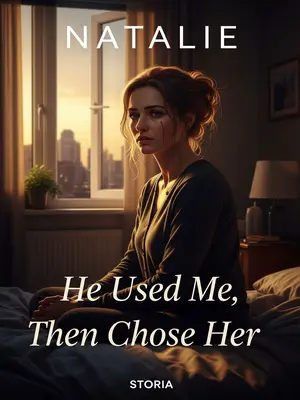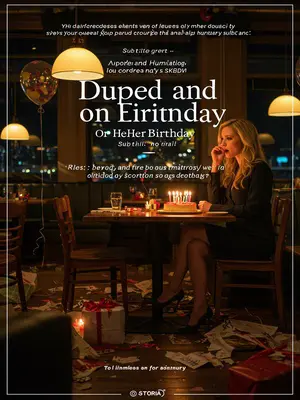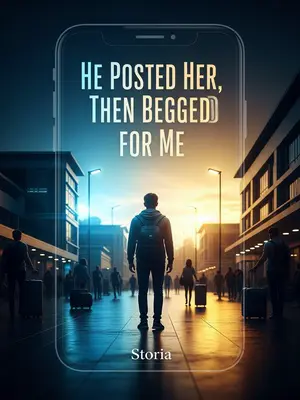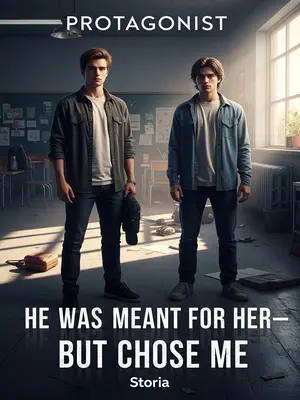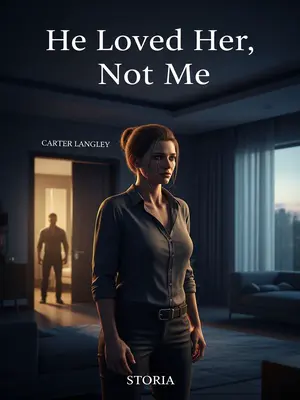Chapter 3: The Day the World Collapsed
When I got home, my dad was on the porch steps, cheap cigarette dangling, worry etched deep into his face.
The porch swing creaked, the railing’s paint peeling. He glanced up, cigarette glow flickering in the dusk. He tried a half-smile, but fear crept behind his eyes.
My mom wasn’t there.
The house felt hollow without her. Normally, she’d be calling from the kitchen, chasing me to wash up or do homework. The quiet pressed in, strange and cold.
He handed me a medical report—it said my mom had breast cancer.
His calloused hands trembled as he passed the paper over. I stared at the words, the black print swimming. It felt like reading about someone else’s disaster.
My dad took a drag and said, “Breast cancer treatment costs a hundred, two hundred grand. Your mom and I talked it over... we’re not going to treat it.”
He tried for matter-of-fact, but his voice cracked. I heard the defeat, the way he tried to frame it as a choice instead of surrender. A hundred grand—it might as well have been a million.
“Your mom said she wants my BBQ ribs. Go buy some, I’ll go pick her up in a bit.”
He forced a smile, like if we just pretended normal, it might hurt less. Those ribs were his specialty—sticky, sweet, smoked on our rusty old grill. I remembered summers at the picnic table, laughter in the porch light.
I refused to believe it. I flipped through the report again and again, my voice trembling. “Is it confirmed? There are so many misdiagnoses. Tomorrow I’ll take Mom to get checked again. This must be a mistake...”
I clutched the pages so hard they crumpled, almost tearing them. My eyes darted over every term I barely understood. My voice was desperate, clinging to the hope that some doctor, somewhere, had it wrong.
I stared stubbornly at my dad.
He looked back, eyes rimmed red, cigarette burning down to the filter. The porch light flickered, bugs swirling in the yellow glow. He just let me see his pain.
His eyes were red, but he just looked at me, silent.
He opened his mouth, then closed it. The lines around his eyes looked deeper than ever. He seemed smaller, like the weight of the world had pressed him down for good.
In that moment, my tears fell, unstoppable.
I pressed my fists to my eyes, shoulders shaking. The porch air smelled like tobacco and rain-soaked wood. I couldn’t stop. The grief was wild and raw.
Finally, I sobbed, “I won’t go to school anymore. Let’s treat Mom’s illness.”
I wiped my nose on my sleeve, voice thick with determination. Nothing else mattered but giving her a fighting chance. School could wait; life couldn’t.
My dad bowed his head.
His shoulders slumped, and he ground the cigarette out beneath his shoe. For a long time, we sat in silence, lost in memories and regrets.
I knew—my dad was just as heartbroken as I was.
He didn’t say much, but I felt it in the way he squeezed my shoulder, the tears he refused to let fall. We were in this together, a team against the dark.
My dad’s right leg was disabled. Back then, only my mom was willing to be with him, never minded his limp, always encouraged him.
He’d told me about the accident—how he lost his job at the mill, how folks in town whispered. But Mom never cared. She used to joke she fell for his stubbornness, not his walk. They were partners, soulmates—the kind you don’t see on Hallmark.
Though we didn’t have much, my parents loved each other deeply.
No fancy gadgets or new clothes, but every night we’d sit at the table, passing jokes and potatoes like currency. Their laughter filled our old house, warming even the coldest Ohio winters.
When I was in middle school, my classmates started talking about what they believed in.
It was for social studies—everyone scribbled answers like 'God,' 'family,' 'money.' I sat in the back, chewing my pencil, wondering what belief looked like for someone like me.
I asked my dad, “Dad, what do you believe in?”
He was fixing the old Chevy in the driveway, hands greasy, sweat on his brow. He looked up, puzzled, like I’d asked him to solve a riddle.
He didn’t get it, so I explained.
I told him it was what kept you going, what you held onto when everything else fell apart. He listened, nodding, thoughtful as always.
He scratched his head, embarrassed. “My belief is your mom.”
He smiled sheepishly, wiping his hands on a rag. It sounded simple, but I knew it was the truth. She was his center of gravity.
Later...
I carried that with me, tucked in my heart like a lucky penny. I wanted to be someone worth believing in, too.
I also had my own belief.
I scribbled it in my old diary: "One day, I’ll grow up and take care of them, just like they took care of me."
I wanted to grow up, make money, and take my parents to see the country.
I daydreamed about packing the car—windows down, radio blaring—and driving all the way to Yellowstone, letting Mom see the geysers, Dad the Rockies. It felt possible, before the world got so heavy.
Now, my dad’s belief had collapsed. So had mine.
Even the house sagged under the weight. My dreams crumbled, one piece at a time.
I held my dad’s hand and said, “I’ll quit school and work. Let’s go to Cleveland and treat Mom’s illness.”
My voice shook, but my grip was steady. Cleveland was the big city to us—where miracles still seemed possible. I pictured us in a bright hospital, fighting together.
My dad just smoked in silence.
The cigarette tip glowed in the dark. He didn’t argue. He just sat, shadows flickering across his face, letting the quiet say everything.
But I’d already made up my mind.
That night, while Maple Heights slept, I packed my old backpack with clothes and a couple family photos. I didn’t know what would happen, but I knew I couldn’t just wait for the world to end.
I had my dad go pick up my mom, then packed for Cleveland.
I stuffed all my hope into that duffel—shirts, socks, the last slice of childhood. The city felt like our last chance.
I went back to school alone.
My shoes squelched in the muddy driveway as I headed back, heart pounding, plans racing through my mind. I figured I’d explain to the principal the next day. I just needed the words.
